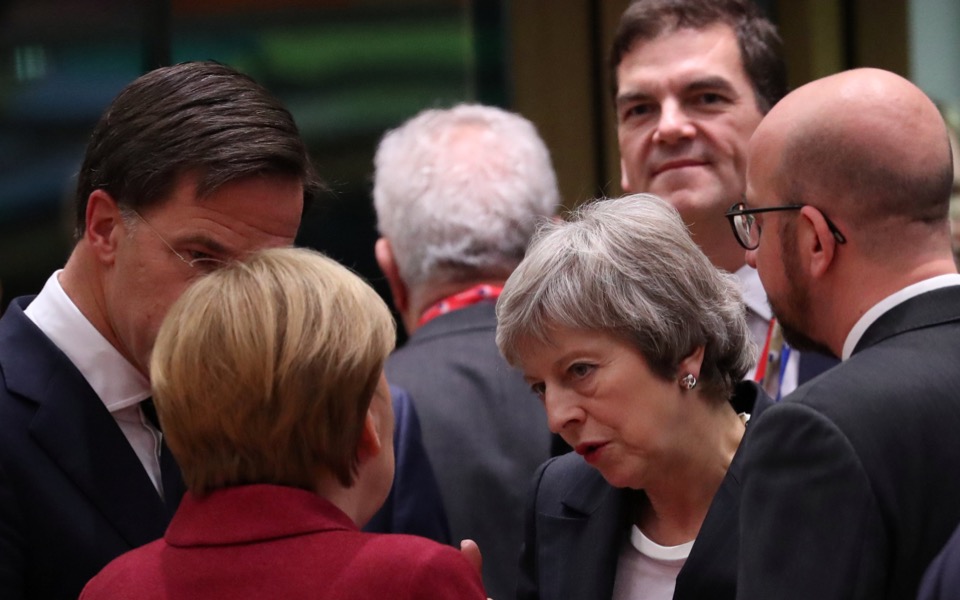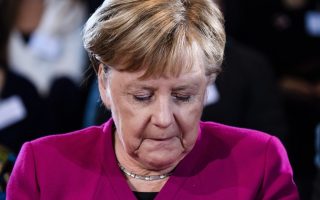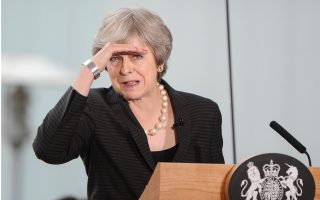Facing Brexit’s dead ends

British Prime Minister Theresa May, her counterparts from the other 27 European Union member-states and the presidents of EU institutions have been discussing the “political” aspects of Brexit since Thursday.
Several leaders made it clear from the start that they would not accept any change to the agreement reached between Britain and Brussels. “But we are ready to discuss how to facilitate UK ratification. As time is running out, we will also discuss our preparedness for a no-deal scenario,” said Donald Tusk, president of the European Council. What we expect on Friday is to see how this “facilitation” will cut the Gordian knot that is Brexit.
May is up against the “intransigence” of her “partners” (to put it in terms reminiscent of Greece’s troubles with the European Union), who are prepared to help only with regard to how she will sell the deal to her party’s MPs.
This week, May put off a vote in the House of Commons when it was clear that Conservative Party members would reject the deal, but she herself won a vote of confidence demanded by party backbenchers. In other words, Theresa May might be unshakable in her party’s leadership for the next 12 months but she might also be paralyzed. The question is whether British MPs will accept the deal by March 29 or whether Britain will suddenly find itself adrift of the European Union.
Brexit has been absurd from the start. Britain’s “Euroskeptics” have wanted to reap the benefits of the single market while rejecting the political aspects of the project – without which the whole venture would fail. Also, a small group from Britain’s elite (many of whom have benefited handsomely from globalization) managed to yoke popular discontent at the effects of globalization to their anti-EU project, managing a weak majority in favor of Brexit.
Furthermore, an unsolvable part of the whole problem concerns the border that will arise between Ireland and the United Kingdom (which includes Northern Ireland) after Brexit.
And yet even though the problems seem insurmountable, even though Brexit can be canceled by withdrawing the application for it, the government will not change course. May excludes the possibility of another referendum.
In the face of this dead end, perhaps the most logical decision – the only political move – would be for the European Union to decide that the lack of a deal by March 29 will not mean a “crash” but, by default, Britain’s continued membership of the EU until such time as an agreement is reached.





